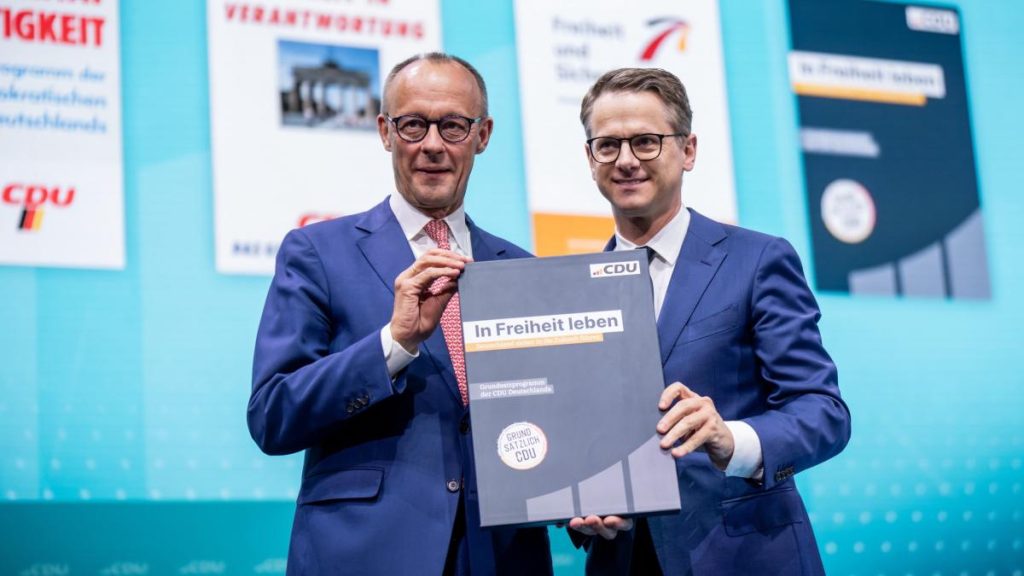The CDU has adopted its around 70-page basic program at its federal party congress in Berlin. It is the fourth in the history of the party. The Christian Democrats have written down their new basic program on around 70 pages – it was approved unanimously on Tuesday at the federal party conference in Berlin. After the programs of 1978, 1994, and 2007, it is only the fourth basic program in the history of the CDU. Why does the CDU need a new program? According to the party leadership, the CDU has lost profile in the long years of the Merkel government. The basic program should serve for “self-assurance” internally – and make voters a convincing offer, said party leader Friedrich Merz. “We must know who we are, where we stand, what we want.” The new program should specifically address swing voters who are not yet firmly in the CDU camp. The CDU’s goal is to return to the Chancellery in next year’s election.
The CDU intensively discussed who belongs to Germany and who does not. Muslims are indeed “part of the religious diversity of Germany and our society,” the basic program states. However, there is a limitation: “An Islam that does not share our values and rejects our liberal society does not belong to Germany.” The CDU demands that immigrants commit to the German Leitkultur “without any ifs or buts.” The CDU understands Leitkultur to mean the commitment to the Basic Law, the “shared consciousness of home and belonging,” the “understanding of our traditions and customs,” and knowledge of German culture and language. The CDU is focused on tightening asylum laws. To make Germany less attractive to migrants, the party proposes a procedure similar to the current British Rwanda model: Anyone who applies for asylum here should be taken to a safe third country, go through an asylum procedure – and even stay there in the event of a positive decision. A proposal to grant recognized asylum seekers the right to stay in Germany did not find a majority at the party congress.
The CDU wants to gradually reintroduce conscription to strengthen the Bundeswehr. The vote at the party congress came as a surprise – in the draft program, the party leadership had only written that there should be “no taboos for the future” when it comes to conscription. This was not enough for a majority of delegates. The CDU now calls for a so-called contingent conscription as a transitional solution, where only a part of those selected will be drafted as needed. In the end, a mandatory community service year should be introduced, which can be completed either in the Bundeswehr or in social institutions. The CDU is calling for more incentives to accept work: Those who refuse work or training should “be financially worse off than someone actively seeking work.” Work is “a solidarity obligation towards the community.” The CDU rejected the proposal for state-financed “start-up capital” for wealth accumulation for newborn children.
The CDU aims to stick to nuclear power but remains vague. “Germany cannot currently do without the option of nuclear power,” the program states. Renewable energy sources are to be expanded, but fossil fuels will continue to be used – with a future emphasis on gas rather than coal-fired power plants. The CDU is committed to the goal of climate neutrality by 2045. In terms of taxes, the CDU wants to relieve the “working middle class.” The income threshold at which the top tax rate applies should be significantly increased. Overtime for full-time employment should be tax-free. Those who voluntarily continue to work after reaching retirement age should pay lower taxes. The CDU rejects a wealth tax. In family policy, the CDU takes into account societal changes and expands its concept of family. Marriage and family should continue to be a “role model.” In addition to the classic marriage, the CDU also includes all relationships intended for the long term – such as same-sex marriages, single parents, or blended families. “Every family is unique,” the program states.















